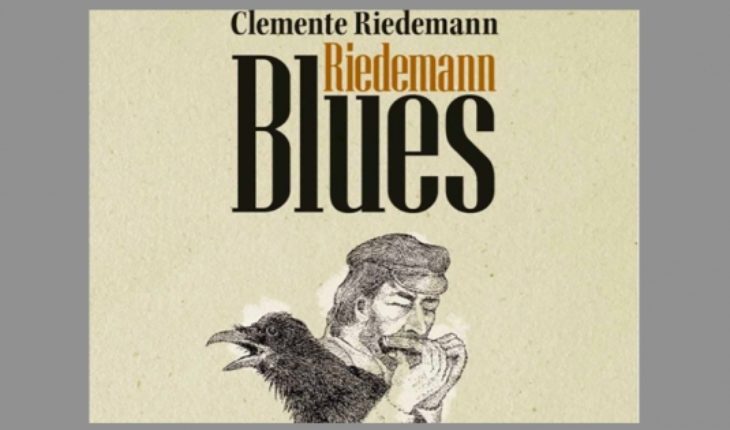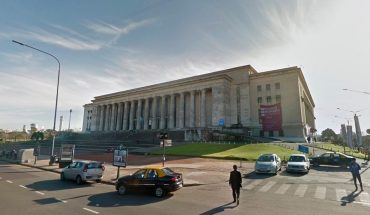be able to read a new installment of Clemente Riedemann us pe u observe that their work remains a clear trend against issues related to memory, history, the dispossession and the barbarism that has been investigating through his creation in the aesthetic of fashion field with a voice that is assumed as collective, consistent from “Karra Maw’n ‘ (Editorial Alborada, Valdivia, 1984, 84 pp.) with which” reached peak, writing one of the books that is indispensable to the Chile of all time and the Spanish language, a frankly brilliant book “, as referred to the featured poet Ernesto González Barnert (Temuco, 1978) in an interview that did you in 2007.
Clemente Riedemann belongs to the generation that has been called “of the post-coup”, “kick-back”, “of the diaspora” or “internal exile” by various national and international academics who set their main characteristics in aspects such as: the reflexivity of the text, which the speaker is always a subject corrupted and with a widespread trend towards colloquial language in function of promoting the unspoken, where writing and politics, as well as literature and society has not be dissociated. In this generation can include poets ranging from Juan Luis Martínez, Jorge Montealegre, Teresa Calderón, Soledad Fariña, Eugenia Brito, takes Harris to Elicura Chihuailaf, those who agree that touched them live poetry “not as literature, but as” History”, according to Cintio Vitier, the prominent Cuban literary critic, about this generation, what we can add to that poetic production of this author more than a fiction production, in particular, is rather a product related to the memory on the horror and also upon the consequences the dictatorship for the entire country and not just for some of their children.
“Riedemann Blues” what first jumps to the eye is that this text is entirely written in third person, causing a double effect which has to do with the author speaks of another representing a community complete and complex; and which also speaks of himself seen from the outside, in perspective, full thanks to the volume of time that has allowed him to watch and observe, reflect as a subject of memory that represents not just the whole of the dictatorial genocide victims, but also to a country wounded in the fight for a more just, solidarity and human, country that has the capacity to rise thanks to these spiritual exercises and justice that are not only legal, but it also poetic level, as it is the case that we now appreciate and c critically omentamos in the book “Riedemann Blues“.
In the poem “take me until the end of the world“, for example, we are faced with the escape of a world or a community of which the speaker feels expelled, rejected, persecuted, causing him a State of such discomfort that this “installed at the edges of the road (…) next to the gutter“, a little beyond the marginalization, where problems rage on all four sides to the character:”sees people doing S.O.S., perched on the roofs of their homes“, image of despair that intensifies in the poem”Hans Pozo Blues“, which reinforces the image of the stripped, the marginal without hope, a missing person in full democracy, which does not worry about his lost children: U” dismembered n which returns to cover the world collecting this poem to raise it as a victim of a village or country extremely individualistic, product of running full steam of a voracious liberalism of drama and horror. In “had to go to Auschwitz“the poet brings together scenes of terror in Chacabuco, Treblinka, the same Auschwitz, Llancahue, Guantanamo, or island tile”where once was imprisoned” share the same sacrifice where It has massacred to humanity in pursuit of a so-called “cleansing” in Chile has been controlled both civilian and military not one, but many times and that continues today against the mapuche and other defenders of the environment. As in “Hans Pozo Blues“, in “the gardener Orostica” the life of a human being ends thanks this time to an accident at work: “just find his body, rasmillado, suffocated and died, to the” Sixty-four live how such a thing can occur in a modern country?“poem which I dare say contains a thick black humor without which they could not breathe. Poems of stupor caused by a society that develops as a disease. In the poem “bylarge malls”shows the same ambition that tempts who first wondered”is that man can not end poverty and how it is that I not accept it term?” developing a ma well macabre s of the poem in which also the voice is played with verses that show a breakdown of his ethics and morals to say “is not it better to learn to calculate the interests while you pull the trigger?“.” It seems as though it is the same liberalism which carries hand to the poetic voice that says that “then he thought how smart are those who maintain the catastrophic diseases, to make a Fortune with drugs that might cure them and how practical” is letting die can not pay who“, death by disease coming to join death by social exclusion in”Hans Pozo Blues“and death by accident in”the gardener Orostica“.”
In the poem “fear of entering the butchers” the theme abruptly changes to horror without mediation rather than the same poem where declares that “in the large palettes of beef hanging from iron hooks saw bodies” from your friends at the rooms of torture“, poem that goes without comment brings to mind the image of beef carcases hanging from the hooks of a carnage of Rembrandt, Dutch painter. And Yes, contrary to what he said Theodor Adorno, there is the possibility of poetry after Auschwitz, although we have to consider that in that sense this, poetry, will no longer be the same after that event peak in the dislocation of humanity at the expense of her my Ma, where the outrage, fascism, xenophobia, racism and all forms of human contempt spin the wheel of horror.
“The flayed ox’ Rembrandt Harmenszoon van Rijn in”Chronic Martian”can see consumption as a real engine of social atomization which is reflected as a practice and a tactic of domination and manipulation of a sleeping partnership,”but pass by ” a wall higher than his executioners have raised that not they to agree (…) However, fun as if everything were Pearl, but not leverage that power to break his chains“.”
What follows is the poetic voice that explores in chips and bundles of the Rettig report and 2,279 cases of violations of human rights in dictatorship and which in any case should serve to raise awareness about this issue that we have not yet assimilated as a society and as muc HOS of our politicians still refuse, hoping the dark silence the anthem, the requiem, funeral music as blues in the background which is the soundtrack that will accompany us day and night so that there is justice and reparation. Love poems to life in the shape of a bomb of memory.
“Riedemann Blues”, Clemente Riedemann, editions Kultrún, Valdivia, 2017, 78 pages.
Ramiro Villarroel Cifuentes. Writer poured in this op-ed content is the sole responsibility of the author and do not necessarily reflect the editorial line nor the counter position.





